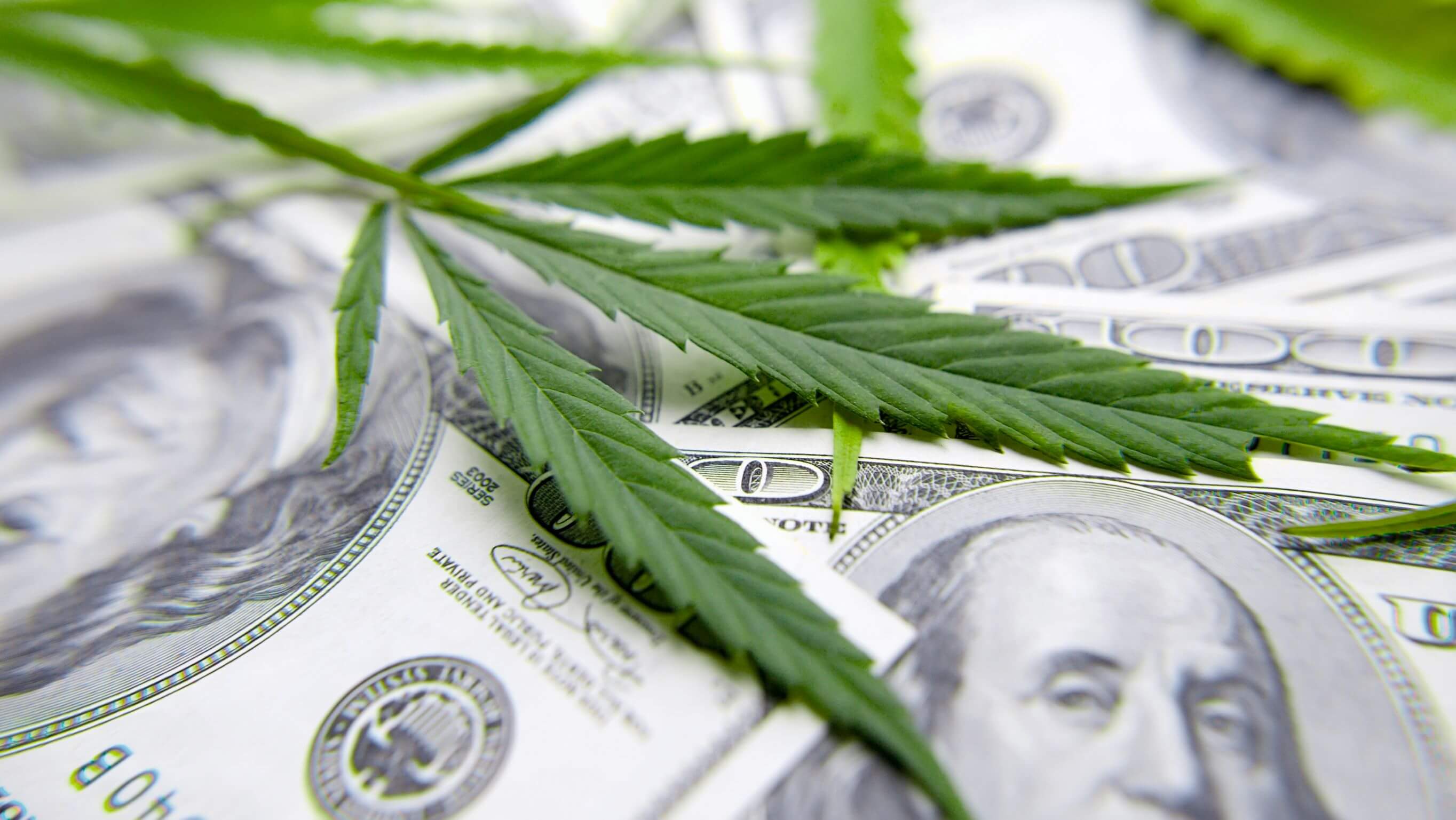Resources
Colorado state tax revenue from the legal cannabis industry surpassed $2 billion in January and the state has collected more than $88.7 million in fees.
In addition to state and local taxes and fees, cannabis businesses have an effective federal tax rate of about 70% – compared to about 26% for other businesses.
Did you know Colorado legal cannabis dispensary owners are unable to deduct normal business expenses like payroll and rent from their federal income taxes?
Marijuana has contributed over $320 Million dollars to Building Excellent Schools Today (B.E.S.T.), making up about 25% of the program's entire budget.
In FY 21-22 alone, nearly $15.3 million in state cannabis dollars went to state Affordable Housing Grant and Loans.
The Marijuana Tax Cash Fund collected $188.8 Million in FY 2021-22 alone.
In FY 21-22 alone, nearly $15 million in cannabis dollars went to the School Health Professional Grant program.
More than $15 million in cannabis dollars went to substance abuse treatment in FY 21-22.
More than $1.6 million cannabis dollars went to the Tony Grampsas Youth Services Program in FY 21-22.
Voters in 59 of 64 Colorado counties voted no on Proposition 119 sending a clear message against raising taxes on cannabis consumers.
Unlike other legalized substances, the marijuana industry has a 97% compliance rate for unauthorized sales.
Unlike alcohol, research has proven you can only get “so high.” Cannabinoid receptors in your brain eventually prevent the body from getting further intoxicated.
Did you know? Since legalization in 2005, teen use in Colorado has remained flat and is below the national average.
According to a recent poll by the Pew Research Center, more than 90% of Americans think cannabis use should be legal.
Did you know? MIG represents more than 400 cannabis business licenses across the state.
A 2021 study found that medical cannabis use was associated with clinical improvements in pain, function, and quality of life with reductions in prescription drug use.
Founded in 2010, MIG is the oldest and largest trade association for licensed cannabis businesses.
Colorado’s marijuana model has become the example for all other regulated cannabis states, and MIG works directly with policy makers to ensure that Colorado’s program is fair, tightly regulated, safe, and successful.
Safe Sales: Every marijuana sale in CO takes place on camera and requires multiple ID checks.
All regulated marijuana in Colorado is tracked from “seed to sale,” with oversight from the Marijuana Enforcement Division.
Established in 2010, MIG has led legislation for child resistant packaging, customer safety resources, and purchase restrictions for 18-20 year olds.
Marijuana is taxed at both state and local levels. This year Aurora built a new $34 Million dollar rec center, fully funded by local marijuana taxes.
The marijuana industry suffers from unfair Federal tax rules, which means that MIG members’ effective tax rates are around 71%.
A 2019 study showed that crime does not increase with legalization.
Conditions for medical marijuana
Cancer - Glaucoma - HIV or AIDS - Cachexia - Persistent muscle spasms - Seizures - Severe nausea - Any condition for which a physician could prescribe an opioid - Autism Spectrum Disorder - Severe pain - PTSD
Most marijuana businesses have access to banks, but because marijuana is still federally illegal, businesses are unable to access merchant processing services such as VISA or Mastercard.
Consuming higher potency marijuana does not lead to higher levels of impairment.
-- Journal of the American Medical Association (JAMA) 2020
71% of Colorado voters favor marijuana legalization. This has increased 10 points in the last four years alone.
As Marijuana Sales Drop, Public Programs Relying on Marijuana Tax Revenue are at Risk
MIG Press Release

FOR IMMEDIATE RELEASE
DATE: July 13, 2022
CONTACT: Madeleine Schmidt
As Marijuana Sales Drop, Public Programs Relying on Marijuana Tax Revenue are at Risk
Marijuana Industry Group Responds to 24% Decline in Marijuana Sales
DENVER – Sales figures released this week by the Colorado Department of Revenue show a continued sharp drop in medical and recreational marijuana sales in Colorado. This causes a substantial decrease in the revenue collected by state and local governments and endangers many important public services from affordable housing to education. Ever-increasing taxes and burdensome regulations continue to push the industry to the brink and decrease revenue for critical programs. Meanwhile, a potential measure on Denver’s 2022 ballot threatens yet another increase on local cannabis taxes, despite the fact that Denver voters rejected a nearly identical statewide measure in 2020.
The state recorded $147.8 million in total sales for recreational and medical marijuana in May of this year compared to $194 million in May of 2021, a 24% drop. Medical sales saw a particularly sharp decrease, with just $20.7 million in sales for this May compared to $36.8 million in 2021, a 44% drop. Recreational sales were down 19% percent year over year, from $157.2 million last May to $127 million this May.
This drop in sales has delivered a major blow to a critical revenue stream that funds key public programs in Colorado. In 2021, the state had collected $217 million in tax revenue by the end of June. This year, the state has collected just $172.3 million, a $44.7 million or 21% decrease from last year.
With over 43,000 people directly employed by Colorado cannabis businesses, the marijuana industry is both a critical job provider and source of revenue for the state. But this downturn is putting those jobs at risk.
“We continue to hear from our members that their small businesses are struggling in the face of high taxes and burdensome regulations that are putting some companies out of business,” said Tiffany Goldman, chair of the Marijuana Industry Group. “We also hear from the patient community that accessing cannabis treatment for Coloradans suffering from critical conditions from cancer to PTSD is getting increasingly difficult. We’re proud to generate millions in revenue for critical public programs related to affordable housing, education, mental health, and more, but this revenue stream is now at risk as the industry approaches a breaking point. We need to protect this critical Colorado industry so that small businesses can stay open, continue to provide good paying jobs, and generate critical tax revenue for our state many years to come.”
Petitions are currently being circulated to put a measure on Denver’s 2022 ballot that would result in a nearly 50% increase in taxes on marijuana products sold in Denver and pull funding from existing programs such as homelessness services and affordable housing. By raising prices for consumers, the measure would also risk an even steeper decline in sales and tax revenue overall. This proposed initiative is modeled on Proposition 119 which voters rejected in 2021, with 59 of 64 counties opposing the measure, including Denver.
###
About MIG: MIG was founded in 2010 by cannabis business owners and supporters who wanted to help craft Colorado’s earliest medical marijuana regulatory framework. MIG is the oldest and largest trade association for licensed cannabis businesses. Comprising approximately 500 business licenses, MIG has strong representation and connections across the state.
Additional Info
Media Contact : Madeleine Schmidt: madeleines@strategies360.com








